Podcast: Play in new window | Download (40.1MB)
Property and Freedom Podcast, Episode 251.
This talk is from the 2022 Annual Meeting of the Property and Freedom Society. Frank Van Dun (Belgium), David Dürr (Switzerland), Hans-Hermann Hoppe (Germany/Turkey), Discussion, Q&A.
Transcript below.
PFP251 | Van Dun, Hoppe, Dürr, Discussion, Q&A (PFS 2022)
Transcript
00:00:12
M: Hi again.
00:00:14
M: All right, let me rephrase the question from yesterday. It just popped up on Bloomberg. Turkey ceased to be the first NATO member to join the China-led SCO. The market signals—I loved your speech, by the way. It was wonderful. But the market has clearly been confirming everything you’ve said so far. What’s it going to take for Europe to flip sides?
00:00:34
00:00:38
HANS-HERMANN HOPPE: For Europe to what?
00:00:39
M: To flip, get away from its vassal status and look east.
00:00:42
HANS-HERMANN HOPPE: It’s difficult to say. Initially, when the whole thing started, there was a celebration of European unity. This brings us all together because now we are all in that same sort of war, and we love each other all as opposed to them. In the meantime, of course, you see that the European Union is on the verge of breaking apart. The Hungarians don’t cooperate there.
00:01:21
In different countries, they are no longer willing, for instance, to send gas or oil to Germany because Germany is obviously the most idiotic country right now in Europe. And the Germans, of course, say there should be European solidarity. So if the European Union breaks apart, which I can imagine would be possible if that war drags on for another year or so, then that might also initiate some sort of break with the US.
00:02:02
There are also—they also celebrated, for instance, that NATO has, again, been expanded including now Sweden and Finland. But I think Sean Gabb yesterday talked about these types of problems too, that all of this increases conflicts because you have now lots of small countries that are in a position to provoke major wars. I think Lithuania has behaved in a way that I think is just absolutely stupid. That is, trying to escalate the whole thing even though you must know that if the United States would come to your help, which I doubt very much, there would be nothing left of Lithuania. I mean, that takes one day and the whole country is finished.
00:03:12
And that other countries like Germany and so forth do not realize they even support Lithuania in these extra provocations that they do. That is—how can I say? It is a situation that I never imagined would be possible. But again…
00:03:38
DAVID DÜRR: May I add something? Especially concerning Europe, I can imagine that, from a very general point of view, Google Earth view, also historically, that we have areas of concentration like US, like China, like Russia more or less maybe. And Europe was something like the rest of a decentralized—I do not speak now about Africa and South America. That’s another story. But among these, I think Europe is sort of an area of still living decentralization. I mean, the typical character of Europe during history was decentralization with attempts, of course, of centralization with these empires, different empires. But in principal, that was decentralized.
00:04:40
Now, there is a mixed attempt going on towards centralization with the EU toward United States of Europe, and let’s hope that that won’t work, that the decentralized aspect is, perhaps, living, that there is diversity, many languages, many cultures. So that could be maybe the place where decentralized could start worldwide, again, perhaps, and such problems like Brexit and others, problems with Poland, with Hungary and so on. These could be signs that something is going on in that direction. I hope so at least.
00:05:29
00:05:33
FRANK VAN DUN: What I find most extraordinary is the degree to which history has been wiped out of this perception of conflict. And if you talk about this until a year ago, everybody knew that Ukraine was a corrupt concoction, and the remainder of the policies of Lenin and Stalin and Khrushchev because the country of Ukraine is not all of them the communist takeover in Russia. And the—all these historical dimensions, which are very pertinent to what actually happens never make it to the media.
00:06:17
And so everything depends on whether the narrative in the media will ever break down or erode because as long as this narrative is kept alive by the professional fabulated class, not the PFS, but the media societies, the global media societies, which dominate the perception of everything. I noticed when the COVID pandemic started, there were a few people that had contacted me, and they said this cannot be true, and this—their story was that the media are lying to us.
00:07:04
And then the moment COVID disappeared from the front page, and Ukraine was there, they were fully embracing the media narrative of Ukraine war. And you were always on the defensive as long as this idea that truth is coming from the media because it’s direct from television, because it’s direct because CNN has a reporter somewhere in a hotel telling you something. As long as this perception persists, I don’t see what else to expect except one crisis after another, a fabrication of crisis, and there will always be the same players behind it because only a few interests are capable of organizing all these people at the same time. And that is perhaps the biggest challenge to—not to give in in the first place, and second, to spread doubt and skepticism. Otherwise, I don’t know.
00:08:22
HANS-HERMANN HOPPE: Maybe I’ll add a little bit. Ukraine, in the current size, has never really existed. The large parts are part of the Austrian empire. Poland ruled large parts of the Ukraine for a while. The Crimea has obviously been a Russian place, even Odessa. So to pretend now that this is some sort of historically grown nation that has always existed in the current composition is just plain nonsense. But the media, as you said, they present it as Ukraine is obviously like this. There are always Ukrainians and Ukrainians. No, there is not even something that you—all of these people currently living in what is now defined as Ukraine consider themselves Ukrainian.
00:09:25
00:09:29
M: Professor Hoppe, I have a question for you about the process of centralization with the globalization. And also, we’re coming from a decentralized Europe, but recently, they all—the pandemic, war was supposed to centralize the European nations, we would say, also centralize with the USA. There is a process of harmonization of the law, unification of the law, even the America—you need to apply some regulation in terms of financial markets in the European Union. So the question is does it stop? And actually we start the process of decentralization once again because of the war and because of the energy crisis and everything that is happening and the centralization maybe.
00:10:18
Will it move to digital space like CBDCs, singular—some currency areas that can be brought from the CBDCs, first national CBDCs but then, worldwide, one currency, central bank digital currency? I’m not saying that Bitcoin would be. They are not pushing for Bitcoin obviously. But is it the process will stop on the institutional level and move to more decentralization, and centralization would be in digital space? So what do you think about that?
00:10:52
HANS-HERMANN HOPPE: There are processes of centralization that are good. I’d say if we would have a one-world money as we did have under the gold standard, that is an eminently reasonable centralization because just having one currency is more efficient than having multiple currencies. On the other hand, if you have fiat currencies, then you would rather want to have competition between them because that curtails the natural inclination of every fiat money producer to produce more fiat money because then the exchange rate of these currencies would continuously decline, and people would go someplace else. We see that that’s why we have this tendency of Bitcoin. People try to avoid fiat currencies.
00:12:06
As far as the question is concerned whether this type of tendency will also lead to—will be completely independent of the territorial concentration, I’m not so sure about that because, again, there will be always a tendency to enlarge your turf and then regulate even the different types of currencies that might exist before. It’s hard to say what will result from all of this. I mean, as Dr. Dürr said, I hope this will initiate a process also of territorial decentralization, which then automatically also implies some sort of monetary decentralization but does not take away the incentive to create some global currency because economic reason speaks in favor of a worldwide currency except not fiat currency. But I’m not sure if I addressed the question that you asked, or I missed some of your points.
00:13:46
DAVID DÜRR: And also something that theory or that approach that may, under a certain condition, one country could be at an advantage, I’m not sure—I mean, I’m not the economist or a specialist in this, but I discussed viewpoints already that why not have several currencies, good currencies in mutual competition, but they do not fit for everything. One currency does more fit for small payments, and other currency for treasury and so on.
00:14:33
And that there, like car competition, one car is more fit for countryside, the other one for the city, smaller and bigger cars and so on, why not having different currencies for different purposes? And apart from that, I think that a dominant currency like the US dollar is not covered by gold anymore. That’s not by coincidence. That’s because they have the legal part, a de facto monopoly, and monopolies are always abuse, and that’s why they have the arrogance to drop the gold standard.
00:15:24
HANS-HERMANN HOPPE: But I have to contradict that a little bit. From a purely economic point of view, a single currency offers tremendous advantages. If you have multiple currencies, you are in a system of partial barter, so it is precisely the purpose of money to avoid barter trade. So under the gold standard, we did have an international monetary standard. The entire world—more or less the entire world used the same commodity as money, and you can have that in any denomination that you want.
00:16:12
I mean, for small transactions. You can also sometimes have tickets that entitled you to a certain amount of gold and so forth. Yeah, but you want to facilitate trade. It is obviously an advantage to have a single currency that we have, so to speak. A dollar standard is simply due to the fact that the United States has supreme military power.
00:16:38
The United States was in favor of the introduction of the euro because this way, you only have to go to the central bank in Frankfurt and give them orders. Before, you had to go to, whatever, to Bonn, and then you had to go to Paris, and then you had to go to Madrid and all shape them up. And then the euro was introduced to weaken in particular the German mark because the composition of these central banking committees that are—now, there’s one German in it or maybe two. I’m not sure about these details anymore.
00:17:23
When I was still teaching that stuff, I knew these things. In the meantime, my interest in those things has somewhat declined. But the German guy is now surrounded by a Spanish central banker, by a French central banker, by an Italian central banker. And one of these people is—the person is more incompetent than the next. Mrs. Lagarde is a typical example. She came out saying, yeah, with this inflation—yeah, we don’t really understand the phenomenon of inflation really. I mean, what kind of statement is this from the head of the European Central Bank? I mean, we understand the nature of inflation for hundreds of years, and that woman—she has—I don’t know what her background is. Maybe she runs this—she runs a suntan salon. I mean, she must have spent plenty of time in the suntan salon. Look at her.
00:18:34
M: So Dr. Hoppe, I completely agree with you that we should weep. So when I said—I asked a question yesterday saying, oh, inflation is rampant, and people in Turkey seem—no, I didn’t say it’s okay. I am saying that, given over the COVID crisis for the past two years, people were okay not—were okay by the government locked them down, closing their business, injecting something into their body they don’t like, but they can put up with it. So I mean, for the inflation that the Germans or the Europeans that they are going to experience or the war that many people will be killed, if they can put up with what they experienced in COVID, which is already so bad, and they can still support the government, then what else can stop them from—stop paying the craziest thing that’s going on in Ukraine? What can stop them?
00:19:48
And my other—and except weeping, what else can we individuals do? And also, I doubt if the Ukraine or Russia, what they do may not be so much matter, but I’m thinking about whether the financial market in response to the high inflation or the anticipated higher interest rate, would there be a scenario that the collapse of it may stop all the crazy things going on; please, for everyone on the panel.
00:20:26
HANS-HERMANN HOPPE: Of course, in a way, you would want to hope for some sort of economic collapse in order to shape up the governments. On the other hand, economic collapses sometimes lead to even worse results. I mean, then the call for a strong man usually arises, somebody that gets us out of the trouble. I don’t see any—I’m pretty sure that there will be an economic collapse. What comes out of this economic collapse, that depends, of course, to a large extent on the state of public opinion. But currently, all voices like mine or most of the people here have no hearing.
00:21:27
There are very few people who can break through to the mainstream media, appear on TV that are allowed to say these things. On the other hand, I’m—I have not lost all my optimism. I appeared on some Austrian TV shows for a few times and said these sorts of things. And based on the number of letters that I get, then I would say, hey, what I say, lots of people think the same way. There are opinion polls in Austria would—my impression is a third of the Austrian people agreed with me when I said you have to immediately stop the sanctions, and then you can have warm showers again.
00:22:26
But, as I said, it’s only one TV station in the entire German-speaking area that once in a while admits crazy people like me to say a few words. The rest of it, they would never touch me. On German TV, for instance, they would not dare to invite me because, as you know, I’m not all that friendly towards these people. To you.
00:23:03
00:23:07
FRANK VAN DUN: Well, I would like to remind you that when you think about these questions, you ask these questions, and they all have the setting of society. And the answers all go in the direction of society, all these structures. These are structures behind your question and structures behind the answer. But there are other ways of survival. And I discussed the convivial orders and the community orders apart from societal orders because societal orders are, by definition, government orders. They have and need a government or they cannot function.
00:23:57
But community orders and conviviality orders, they are not governed. They have a very different political philosophy. Now, for lack of time, I did not go into the political philosophy aspect, but the traditional—even the language has disappeared. I make it clear the traditional way for speaking about the governance of the government, but the governance of communal—convivial orders is in terms of rulers. Rulers are the judges, and at one point, someone mentioned—I think it was—I don’t remember who it was, the biblical book of Samuel.
00:24:44
HANS-HERMANN HOPPE: [indiscernible_00:24:46]
00:24:47
FRANK VAN DUN: So the reference was to people want a king in the Bible, and this was despised advice of the wise men, the rulers and the judge, Samuel. Now, the ruler advises people, but he has no commanding power. And when the people asked for a king, they wanted someone, a strong man, who would be able to do great things just by speaking them into existence, a commander. And if we speak to other people, we know we cannot command them. That’s the experience of daily life. But nowadays, everything is projected onto a societal scene, which is majestic. It goes to—it has many rooms, and nobody has ever seen all the rooms, and we are easily impressed with the things governors say.
00:25:53
I once had a discussion with the—a later-displaced politician in my country, and he says—he was at that time the economics minister. He began his speech with saying I am so busy. I hardly see my [indiscernible_00:26:12] except at the weddings of their daughters. And at the end of the speech, two hours later, saying, well, somebody has to have a good overview of the situation to make the final decision. He was talking about himself.
00:26:29
So he doesn’t know what’s happened, but he has—he claims to have an overview of everything, and he gets away with it because nobody else has an overview of everything, so he’s bluffing his way through. And the whole language of centralized control is really bluff. But as long as the bluff works, the centralization seems to work. But it’s a house of cards, and this can collapse at any moment.
00:27:02
HANS-HERMANN HOPPE: But to accomplish what you want—you need in a way is secession. Now, secessionist movements, I mean, a start of that would be the dissolution of the European Union and maybe then it continues, and smaller and smaller units are breaking away. And you have, again, communal relationships instead of what you call society relationships. But whether that is in the cards, I’m also not so sure.
00:27:43
00:27:47
DAVID DÜRR: I like very much when you said it’s a house of cards, and actually, it’s not a stable situation. Maybe this was you were alluding to, and my approach would be—I mean, this is a very fundamental question. How should it go on, and how is it possible to communicate this way of thinking and looking at and to see how it is? I sometimes compare it with what happened to the church, namely, the Catholic church. There were times where the church was absolutely in authority. Everybody obeyed it. They were very strict against heretics that were the very big danger for the structure because the belief in the system could be challenged.
00:28:48
And I think that is an interesting approach to challenge the belief in this crazy statism that, in truth, these are violent gangs, how Hans put it before, which is just true. There are organizations that they steal money from the people, things like that, and to show that and to speak about it, to write about it, to communicate this way of thinking. And if this works, besides many other things, besides maybe some specific secession programs, things like that, but then perhaps happens to the state the same what happened to the church. The church was never abolished. The church was forgotten. Of course, yes, there is a church. That’s true. Some go there, and that’s fine if they are convinced of that system. But it’s their church, and nobody there is to force somebody to be a member of that church anymore, and it could be that way.
00:30:05
I remember on a very small basis in Switzerland when people began to withdraw from the church. The church, and in Switzerland there’s a tradition that church taxes—that there are church taxes depending on the official taxes, a certain percentage, very crazy, but that’s the system in many cantons in Switzerland. And in that time when many people went out of the church, they declared their exit of the church. The church came to them and tried to negotiate the rate of the tax. Would you remain a member when you just pay half of the usual? Things like that. And maybe when it goes in such a direction that people just are not interested in anymore in these crazy structures that they do not believe in it, that they laugh at it, things like that, maybe, maybe. Maybe that could be the approach to work on, to speak about these crazy structures.
00:31:27
00:31:32
M: Thank you very much for your presentations, gentleman. In the next few days, we will leave Planet Bodrum and transfer to the real world. So we need some practical advice. Now, starting from the conflict between Russia and Ukraine, how should a person from a libertarian point of view deal with a bully, with a superior bully? Could you develop, each of you, maybe briefly this? How should I deal with my own state, and how should I deal with foreign bully states? What’s the right attitude? Is there anything general that we can say, or is this…
00:32:14
00:32:17
M: You didn’t understand.
00:32:19
HANS-HERMANN HOPPE: [Indiscernible_00:32:21]
00:32:24
M: Do you hear me?
00:32:26
HANS-HERMANN HOPPE: [Indiscernible_00:32:27]
00:32:32
M: How should—is there anything general that we can say about how a libertarian should deal with a bully, his own government, and a superior foreign government?
00:32:46
HANS-HERMANN HOPPE: Wisdom. That’s all I can say. You have to assess how dangerous is this bully. How many allies would I have if I go against him? How much should I tolerate? When should I give up, move someplace else? I think—do you have an answer to that question?
00:33:20
M: No. You are the expert.
00:33:24
HANS-HERMANN HOPPE: I’m no more an expert on these types of questions than you are. I mean, this is just—you have this problem also on a one-to-one level. I mean, if you have a really nasty neighbor, what can you do about this nasty neighbor? Sometimes it’s easy. You get your friends together and give him one on the nose. Unfortunately, it’s not so easy with places like Russia, I guess. You can’t go to Putin and give him one on the nose.
00:34:11
I think making fun of one’s own gangsters is probably an advisable strategy. It will be difficult for them to attack you if you only make fun of them because, in order to attack other people, you need a certain amount of support from—on your own side. I mean, if all people around me, if you just made a joke about such-and-such, you cannot possibly dare to kill him or jail him or so. But when that point is reached, how many jokes you can make and how drastic the jokes can be, that’s also a question of wisdom. You have to—begin to understanding as a method of the social sciences. We must understand our enemies.
00:35:25
I mean, where people like me are criticized, Putin [indiscernible_00:35:35], Putin understander. But understanding somebody does not mean that you agree with this. It just means that you find out what their motives are, what their goals are, and then you have to adjust to this. I don’t think there’s a general rule that applies to all. There can be thousands of situations that require thousands of different answers to it. But you give me the answer tonight. Why do you make—ask difficult questions like this?
00:36:18
00:36:23
DAVID DÜRR: I still didn’t understand fully. The bully, is that now Putin, or is that just once you have a problem with some gang leaders, so to speak?
00:36:33
M: All bullies.
00:36:36
HANS-HERMANN HOPPE: [indiscernible_00:36:36]
00:36:46
00:36:48
DAVID DÜRR: So I mean, maybe it’s the same question we had before. How do we approach this problem all together? Is that—so just how to deal with the realities of these statist structures. And I think that, then again, we have this problem of that people believe in it, and then it’s very difficult to convince them or to inform them that it’s not worth believing it anymore, in these structures.
00:37:25
And I think it’s always a big dilemma when you try to position yourself within this team. Shall you enter into these structures in order to change them from the inside? There are approaches like that that people, libertarians, they compete for being elected in some parliaments or so in order then to try to change the whole system. But I think that won’t be a consistent way because maybe on a psychological level you will become part of that system earlier or sooner or later.
00:38:14
Like the Green Party, when they entered in the parliament then in Germany many decades ago already, they said we are only for two years. Then we change. And I think the first change did not take place, so these are illusions, I think. Maybe it could be a program I thought about once to compete for election with the program to liquidate this organization. So you won’t be elected as the CEO or so in economic terms but the liquidator, and the job is to liquidate. There will be no actions anymore concerning going further but liquidation. That could be a program. I do not know that at this moment you have much success with it, but that could be a consistent way to try to do it from the internal approach.
00:39:20
00:39:24
HANS-HERMANN HOPPE: Frank is the oldest here, even older than I am. So he will be—he has accumulated more wisdom, so maybe he knows the answer to this complicated question.
00:39:38
FRANK VAN DUN: Well, it’s a complicated question, but if you project it into the societal background, then, of course, the bully, the man with the tattoos who will smash your head in and things like that, you do not have to fear him because he will just pass and go away. The real bullies are the administrators, the people at the top, who will revoke your license to do whatever because you have—in a society, people do not have rights. It does not exist in a society. We talk about a rise in society, but that is a memory of earlier times when societies were small compared to the communal, convivial order. The Christian world was the ruling idea, and it imposed order and ideas of right and wrong on the world.
00:40:43
But the moment societies rise above all these ingrained sources of value and normativeness, you lose the possibility of arguing for right and wrong because it is decided for you, and it is not decided in terms of right and wrong. It is decided in terms—this is the efficient or the effective policy that we are pursuing, and you are permitted to join it. If you do not, then we will revoke your license, or you pay more taxes or whatever.
00:41:22
This is the kind of bullying that is most effective because it can be started and propagated with a single word at the top of the social hierarchy. We saw that in the COVID period. Why did all these independent or self-employed people suddenly put on mask or close their doors and do all these silly things? Not because they were so afraid of the virus, but there was I am going to lose my license. Doctors were afraid to speak sense to their patients because I am going to lose my license. I am not a—it’s not a free profession as they sometimes call themselves still. They are functionalists of a huge machinery, and that is the bullying power. But you can—as an individual, you can oppose it at the lowest level. The man at the desk, not the higher-ups, but the man at the desk, you can still talk to him. It’s not very easy to do so, but you can always bluff him down.
00:42:49
So I remember one occasion when I—for some silly reason, he refused to accept my photo for my passport because it was not recent enough. And then he turned it around and said see, it has a blue background, a blue background, so that proves it’s too old. I said, you shouldn’t get excited. And he said, why should I not get excited? I said, you didn’t make these silly regulations, did you? And he turned away, put a stamp on it, and he gave me my passport. But these are very small consolations. You do not defeat a bureaucracy in that way. Defeating a bureaucracy is almost impossible unless it defeats itself, when it makes itself so hated or so incompetent that it collapses as another house of cards. But as long as there are cards available, they build another one. That’s for sure.
00:44:02
00:44:06
HANS-HERMANN HOPPE: One more question and then we are done.
00:44:10
M: I have a question. Hans, I do agree with your analysis of the current situation, but I still have a doubt. Given as the world has been going in lockstep during the last two years, I think—I am afraid that the push towards a one-world government is way further ahead than we think, and so I have a doubt. Is it possible that it is all a great show, like David Dürr would say, and that Putin is part of the show, and it is very useful to have this war going on because this is useful to do what they are doing, destroying Europe, destroying little businesses and so on? So this is my doubt. Maybe it’s all part of a great scheme of a great representation they are pushing forward to our disadvantage.
00:45:08
HANS-HERMANN HOPPE: You are revealed now as one of the biggest conspiracy theorists that I have heard in a while. That might well be true. I would like to see a little bit more evidence of it, but we are dealing with extremely evil people on all sides. Who knows what they have done and arranged in the back rooms of which only very few people have an idea? I doubt it, however, because any type—I mean, that would require a conspiracy obviously.
00:45:53
But conspiracies are difficult to organize. Somebody has obviously an incentive to spill the beans. That’s all I can say. I wouldn’t rule it out. Currently, I don’t see enough reasons to think that way for the reason that conspiracies—very small conspiracies are easy to do. Three, four, or five people can do something like this. But as soon as more people are involved, they have to be quiet. Nobody should spill the beans. The larger the group is, the more difficult it is not to have somebody who does spill the beans.
00:46:48
00:46:54
FRANK VAN DUN: Well, there is a remark by Marshall McLuhan, a communication specialist, which was very—who was very famous when I was younger. And he said: Remember, only the small secrets have to be protected. The big secrets are protected by the mentality of the public. They will not refuse it—they will not believe it because they refuse it. They can’t be that bad, or they can’t be tested. So that’s a factor you have to reckon into the equation. And, of course, the notion of the open conspiracy, which was launched towards the end of the 19th century in the circles where H.G. Wells was active, that’s basically the same idea. You conspire, but you do it so openly that people think, hey, that must be okay. Otherwise, they would not be doing it. That’s an open conspiracy.
00:48:02
HANS-HERMANN HOPPE: So what’s your assessment then to—you said going on that Xi and Putin and Biden are all working on the same project.
00:48:14
FRANK VAN DUN: I think that would be a rash conclusion. But it is true, of course, that even Putin was once a member of the Young Leader’s Program of the World Economic Forum. But I think he’s not the best pupil in the class.
00:48:34
00:48:41
HANS-HERMANN HOPPE: Oh, come on. No, that’s enough for today. I thank you all for listening, and we will see each other at dinnertime.
00:48:51





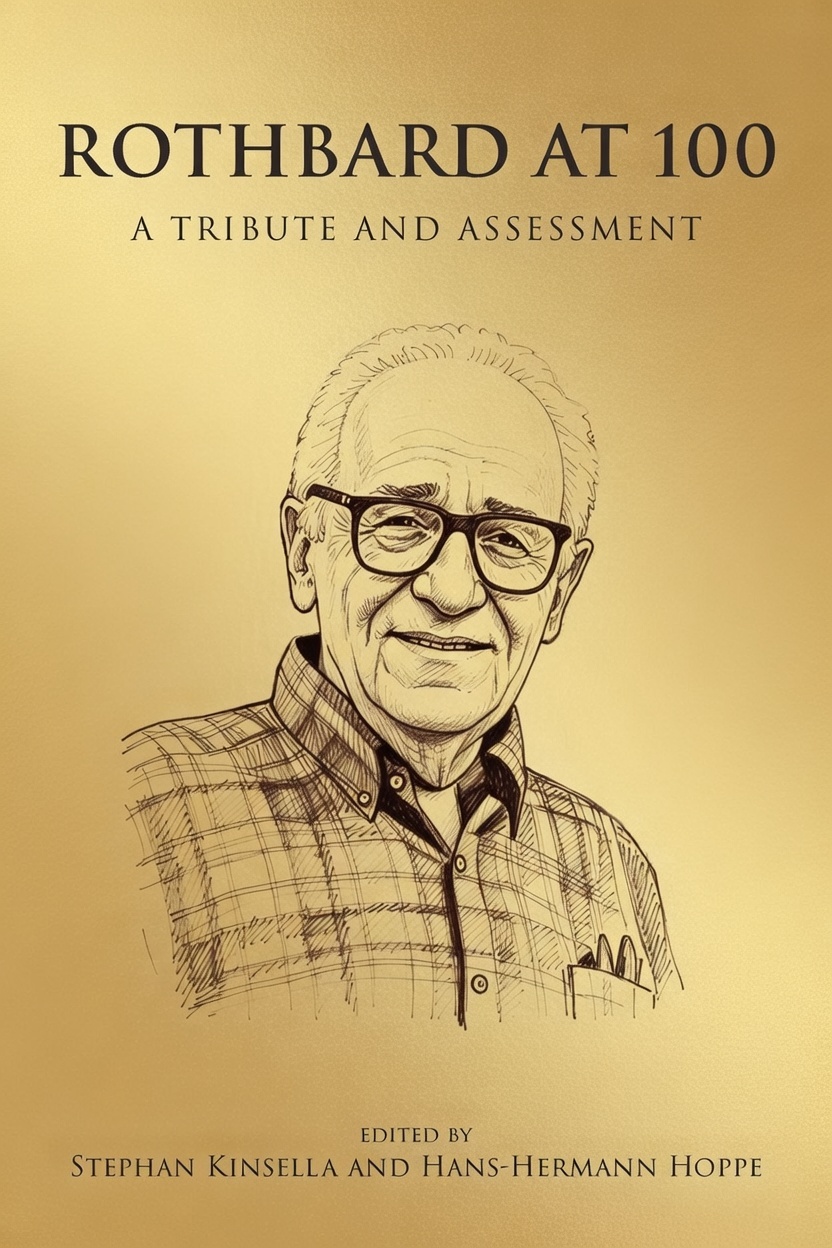
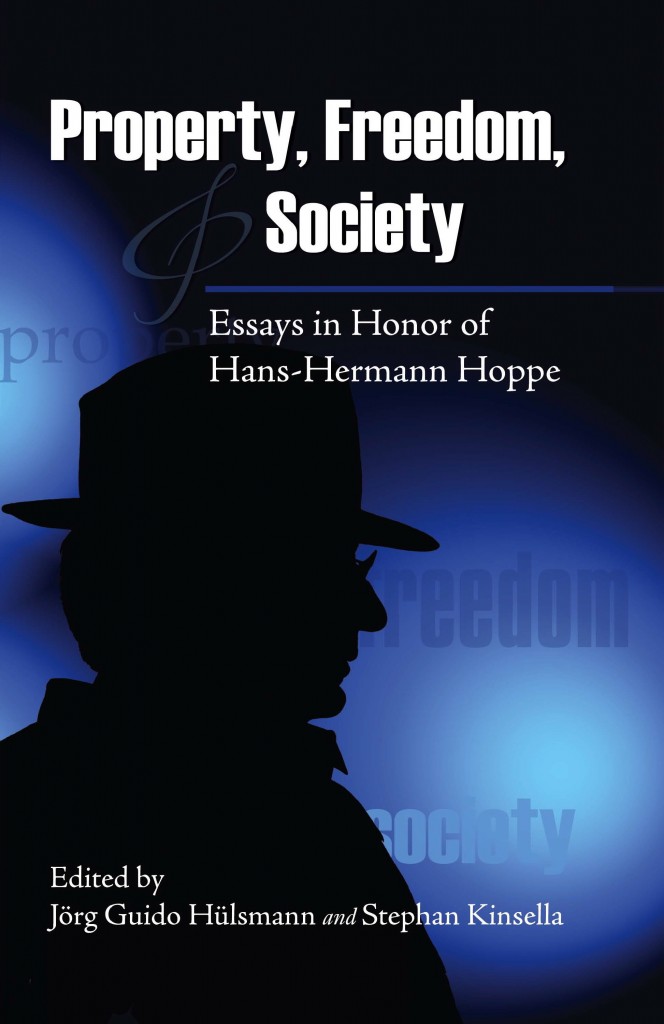






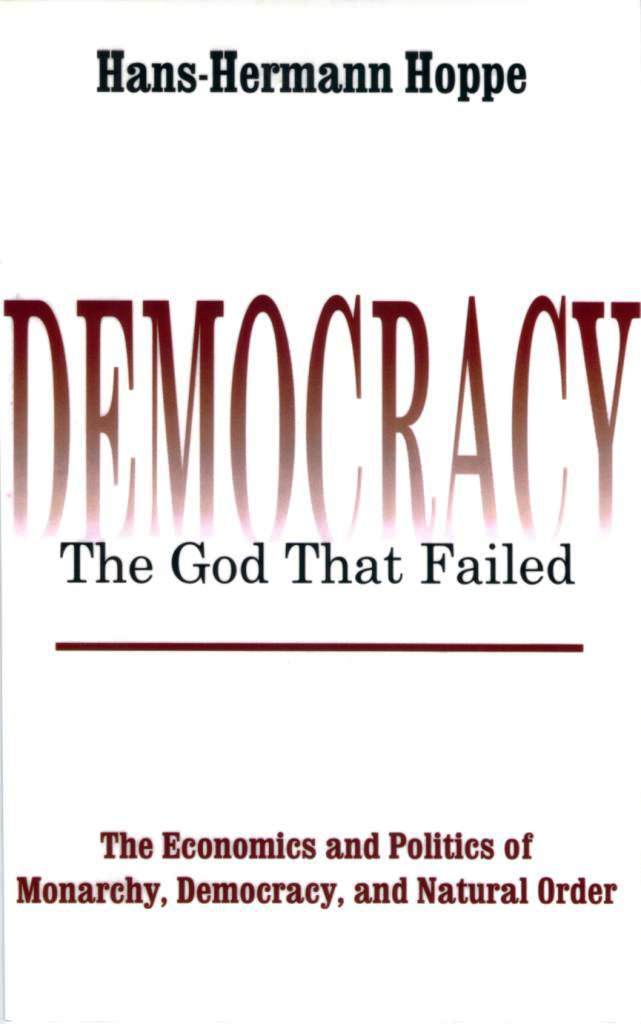


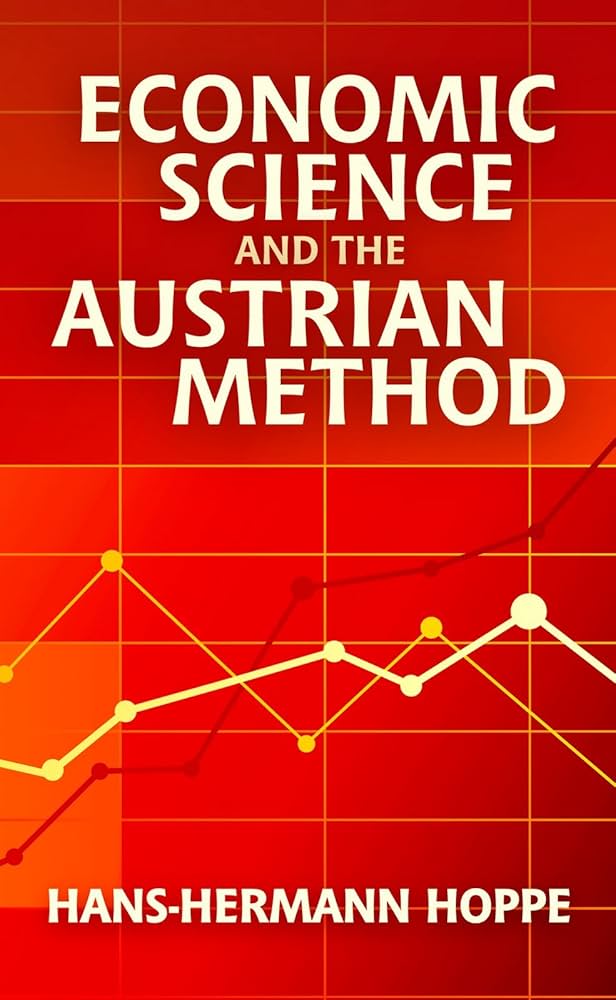
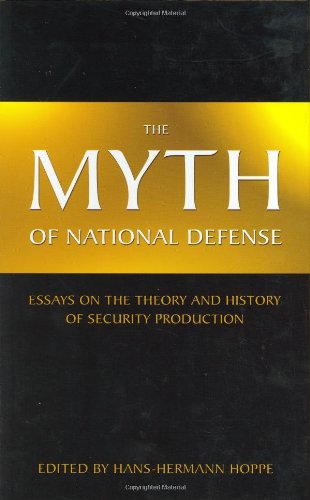
You must log in to post a comment. Log in now.